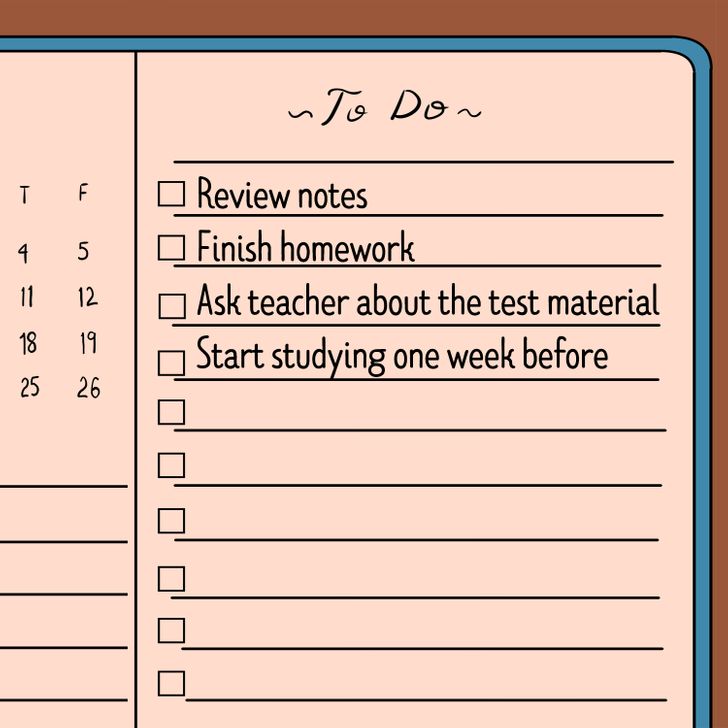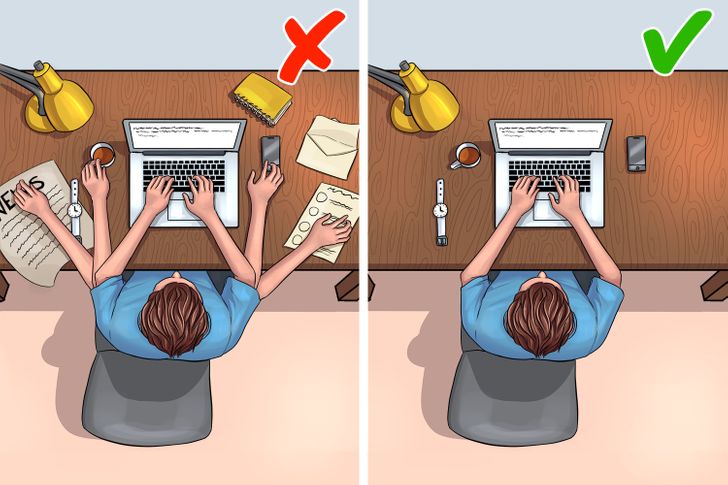How to Be Organized at School

It’s common for school and stress to go hand-in-hand, especially during those times when you feel like you have no control over certain things like homework and assignments. But if you just organize, stay focused, and plan ahead of time, better results will come.
With that in mind, let 5-Minute Crafts guide you through your student life with these 5 tips to stay organized during school.
1. Get into a routine.

Consistency is key for students. Developing a routine can help you stay focused and make it easier to remember doing things like homework at the same time everyday. Plan ahead to optimize your time and productivity. Don’t worry if a last-minute obligation comes up, you can always adjust your schedule accordingly.
2. Take notes.

It can be difficult to remember everything. Instead of taking mental notes in hopes you’ll remember later, try making it a habit to write everything down — upcoming activities, exams, ideas, and assignments too. Use tools like notepads, planners, or even smartphone apps.
A great technique to try is the mind map method. It consists of taking notes in a similar way of how your brain naturally functions. A mind map is a structured visual representation of ideas and concepts. It’s a fun method that helps you organize your ideas, information, and come up with even more ideas!
How to do it:
- Start by writing or drawing the idea you want to develop in the middle of a horizontal blank page. This is the starting point of your mind map.
- Then, let your creative mind begin developing the related subtopics around this central idea, using a line to connect each one to the center.
- Continue the process for any subtopics that come to mind, creating as many lower-level subtopics as you want and connecting each of those to the corresponding subtopic.
3. Set your own deadlines.

Another tip is creating your own personal deadlines, because working on an assignment last minute can be stressful. Instead, deciding on an early personal due date can turn out to be easier. It also allows for extra time in case the task takes longer than anticipated or you encounter an unexpected issue.
4. Break down big tasks into smaller tasks.

Large tasks can often seem intimidating or overwhelming. To tackle that, it can be beneficial to break them down into smaller and more manageable tasks, and you can work on all parts of the assignment at your own pace and not feel stressed out in the process.
5. Avoid multitasking.

In theory, multitasking sounds great because you could get more done in a less amount of time. But in practice, it’s not quite true — because it essentially dilutes your focus and attention. While you may think you’re multitasking, you’re actually task-switching, which means your attention is constantly shifting, wasting resources.
Focus on one task at a time, and only turn your attention to the next assignment when you’ve completed the first.